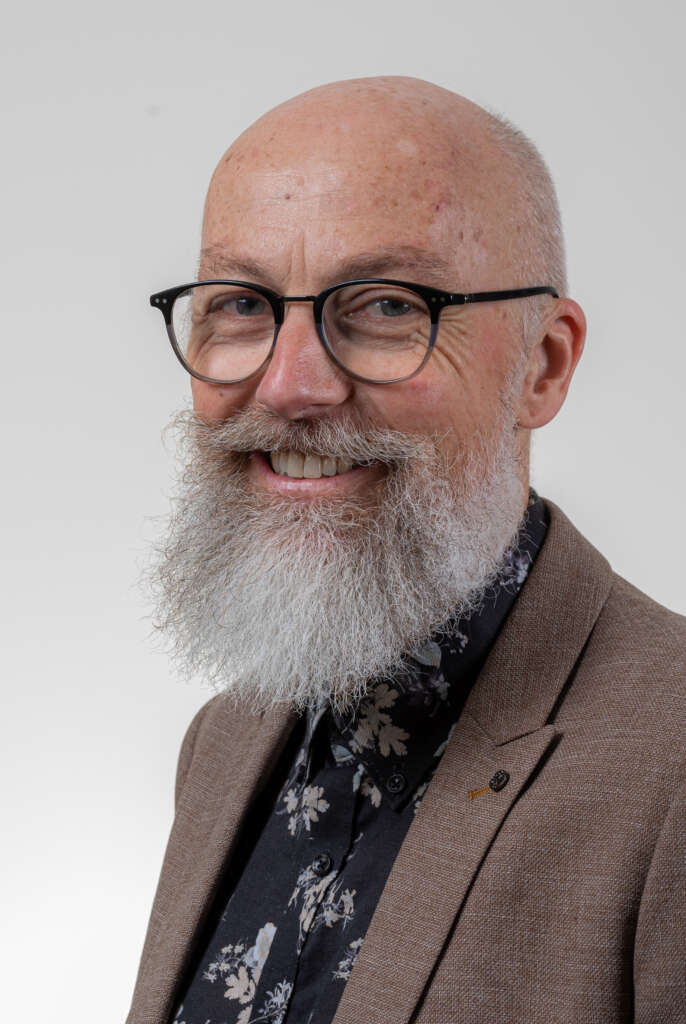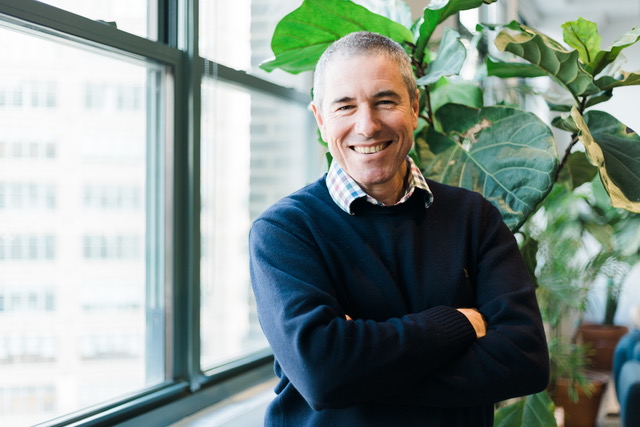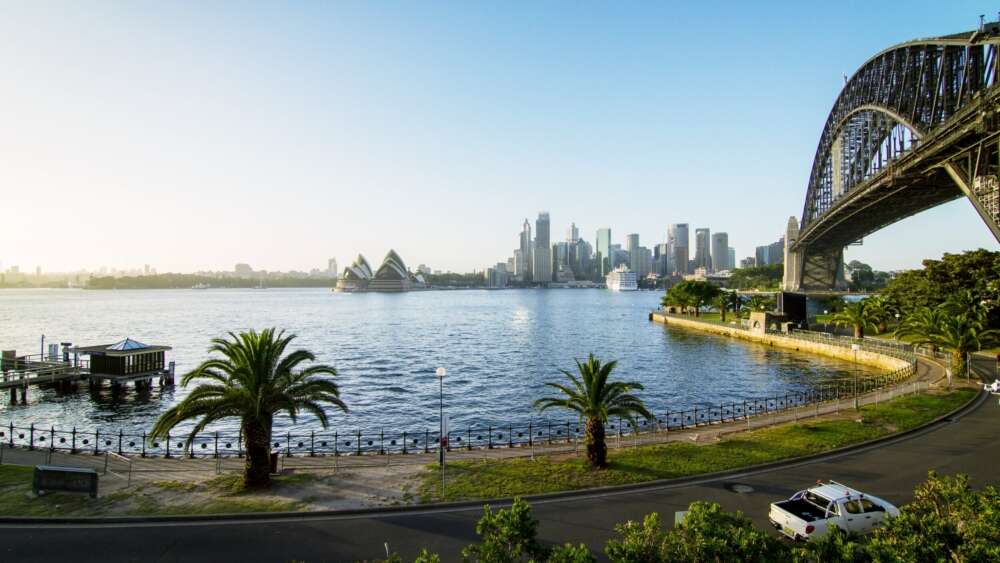In a significant expansion of City to City’s work in promoting movements of the gospel in Australian towns and cities, Stephen McAlpine – a leading writer, blogger and speaker on the place of Christianity in Australia’s post-Christian culture – is coming on board full-time as a thought leader.
The author of Being the Bad Guys – winner of the 2021 Australian Christian Book of the Year Award – will head up a new department focused on equipping Australian Christian leaders with a gospel vision for a secular age. From 2023, City to City will work with Christian schools, churches, para-church agencies and leaders to provide McAlpine with a platform to engage secular Australia with the truth of the gospel.
City to City Australia is the Australian affiliate of a global movement started by Tim Keller’s Redeemer Church in New York, which helps start churches, strengthen churches, and build coalitions of Christian leaders to catalyse a movement of the gospel in particular areas.
Perth-based McAlpine tells Eternity a key attraction of the role was “Tim Keller’s vision of how to engage with cultural clarity but also a gospel focus.
“You do need to understand where we’re at culturally if you’re going to bring the gospel to bear in a way that can be heard,” he said.
“I feel that church and Christian schools are at the coal face of cultural changes, and I want to ensure that they’re able to navigate that space faithfully, but not fearfully. I want Christians everywhere to have confidence in the gospel and greater clarity as to why our culture thinks the way it does, and that the gospel confidence enables them to find ways to address the culture from a gospel perspective, neither caving into the culture nor being blind to it or being completely angry about it.”

Steve McAlpine
As CEO of City to City Australia, Andrew Katay does not believe the oft-repeated story in the mainstream media that Christianity in this country is in an inevitable, unstoppable decline.
“I believe that decline is neither necessary nor inevitable,” says Katay, who is also Rector of Christ Church Inner West, a group of four Anglican churches.
“God is at work in all sorts of ways, in all sorts of places – by no means only through City to City, of course. And we just play our little part as we can in a context where there’s increased loneliness, increased desperation, increased depths of despair – total confusion among young people, panic by parents. I mean, there’s so many kinds of challenges – economic challenges – that people are facing right now. And every one of those challenges is an opportunity to minister Christ to people.
“So I’m pretty optimistic. I feel we should not be intimidated or scared but see the reality for what it is, which is a whole bunch of new opportunities. They require new responses and the same gospel, but in a freshly presented way. There’s no inevitability or necessity to the decline.”
“Every one of those challenges is an opportunity to minister Christ to people.” – Andrew Katay
However, the current reality is that Australian churches are, at best, numerically stable while most are declining.
“Some of the Pentecostal churches are increasing, but overall, numerically, the church is staying almost perfectly horizontal. And population growth is 1 percent a year, so the Bible-based church-going population of the country is going backwards relative to population,” says Katay.
Katay says the goal of City to City is to create a gospel movement characterised by the growth of Christianity in an area exceeding its population growth. In New York, for example, the proportion of people attending gospel-centred churches has increased from 1 percent to 5 percent over the past 20 years. While that is a remarkable statistic, a more ambitious marker of such a movement is when the Christian subgroup reaches 10 to 15 percent of the population and becomes unignorable “then the whole thing begins to snowball,” he says.

Andrew Katay
In pursuit of this goal, City to City Australia has significantly expanded its programs over the past 18 months, particularly in church planting and revitalisation. It now has representatives in Adelaide, Hobart, Melbourne, Bendigo, Sydney, Canberra, the Sunshine Coast and Perth and is working to equip and train church leaders in ten Protestant denominations.
For example, Multiply TAS is a partnership between City to City and the Anglican Diocese of Tasmania, which involves starting new congregations as a way of strengthening and making a generational impact in the churches of the diocese. “We’re working with 10 or 11 churches in the Multiply TAS program with the intention that over the next five years, it would end up being most of the church and the diocese,” notes Katay.
“A particularly exciting development for us has been the growth of church planting among non-English speaking churches and First Nations churches,” says Mark Morley, COO of City to City.
“Thirty percent of our new church plants are among communities of non-English speakers or First Nations-led churches, and 30 percent of City to City’s new plants are led by a female pastor. This means that we are actively working with Aboriginal communities in Bendigo and Morwell, a Vietnamese congregation in Sydney’s inner-west, a Mandarin congregation in Hobart, and a Hindi-speaking church in the northern suburbs of Melbourne. These are all orthodox, gospel-centred churches that are being brought into existence! Praise God.”
“Thirty percent of our new church plants are among communities of non-English speakers or First Nations-led churches, and 30 percent of City to City’s new plants are led by a female pastor.” – Mark Morley
There has been a significant investment in the pipeline of church planters, with 30 planters undertaking its residency program this year and about 60 going through next year. The residency program has two strands that are related but distinct. The larger group comprises church planters who are already up and running and doing some retrofitting training.
Then there is a new cohort of seven young “residents” – two in Tasmania, two in Sydney, two in Victoria and one in Darwin – starting next year who will lay the groundwork in the pre-launch employment phase of a church plant. Many are funded by generous anonymous donors or churches who have caught the vision of training church planters and watching them grow and flourish.
“The idea of the residency is that starting a church is a complicated business. On the one hand, you need a sufficiently long runway for the plane to get enough speed up so that it takes off. On the other hand, you can’t have too long a runway because people can’t hang around waiting for a new church to start forever,” explains Katay.
“At the same time, the church planter needs an income to make their living. And so there are a number of these factors that mean that a church planting residency, funding the pre-launch phase of a church plant, is a great contribution. And so that’s what the residency is. It’s on-the-job preparation and training for the runway so that the planter has enough time to get the plan ready, but it doesn’t take too long and they can earn an income at the same time.”
Work on the “runway” includes researching the area, recruiting a launch team, preparing a vision, finding a venue, and further training. City to City has partnered with Fuller Theological Seminary in the US to Australianise its Church Planting Certificate, which comprises an afternoon a week of on-the-job online training. These residents will attend a City to City Asia conference in Kuala Lumpur later this month.
“Our vision is to see 500 churches planted in the next ten years. But we think we could help turn around and help strengthen 1500 churches in that same period.” – Andrew Katay
While church planting often attracts the news, City to City is putting equal efforts into its Revitalise Australia program, in which its consultants are working with more than 70 churches in Australia and New Zealand; this figure will grow to 120 next year and 200 a year after that. They will also be supporting colleagues in Malaysia to launch their own Revitalise program next year.
“McCrindle reckons there are about 13,000 churches currently in Australia. We think that there are probably about 3000 of them that are orthodox in that historical Christian sense that are stuck, plateaued, or declining,” says Katay.
“So our vision is to see 500 churches planted in the next ten years. But we think we could help turn around and help strengthen 1500 churches in that same period. And so the Revitalise Australia program is that vision to see churches being fundamentally transformed, strengthened and often ‘unstuck’.
“The fact is that often the primary strategy for helping your church get unstuck is to sack the minister and get a new minister, but that’s a pretty lousy strategy because there aren’t many ministers to get – it just doesn’t work. It’s not great for the minister, and often it comes without having invested a great deal in helping the minister and the church together do better.”
City to City has built a team of “a couple of dozen people” who will work with existing churches for a year to “give enough leverage to get these churches transformed, strengthened and growing.”
“We think that that could even triple the impact of church planting. That’s why we’re pretty excited about that and see that as a very significant potential contribution,” says Katay.
“And if you’ve got a whole bunch of transforming churches that join together and say, ‘How can we reach [our city] for Christ,’ then you might just see a movement of the gospel emerge.”
“If you’ve got a whole bunch of transforming churches that join together and say, ‘How can we reach [our city] for Christ,’ then you might just see a movement of the gospel emerge.” – Andrew Katay
Katay offers four key metrics that characterise an “unstuck” or healthy church. The first is having 15-20 percent of newcomers – people who weren’t at a church five years ago – in church on a given Sunday. They might be de-churched people – those who used to go to church but then dropped out – or never churched people coming to Christ and finding life in him.
“The second key metric is leadership development. A church will only grow to the degree that it’s got a great system for raising up and using the gifts God has given the people in the congregation. So leadership and ministry development, and if that’s growing at a 50 per cent rate a year, then the church is in a healthy spot.
“A third factor would be financial health. So a church needs to be making a 5 per cent surplus each year. And a fourth factor is retention, which is when people turn up at church, they find something at church sufficiently intriguing that they come back the next week. And if you put those four things together – newcomers, retention, leadership development, and financial health – then that church will grow as long as it’s got the gospel as central.”
“The issues that 16-year-olds are now facing are incomprehensible compared to what we were facing in the early 80s.” – Andrew Katay
Katay asks for prayer for the raising up of new leaders and new church planters across Australia.
“Secondly, the spiritual and theological wisdom to know how to be utterly and absolutely both faithful to the gospel, and at the same time know how to speak that gospel into the particular challenges, hurts, pains, needs, fears of the culture at the moment,” he says.
“That’s part of the thought leadership that’s needed. I came to Christ in the 1980s, and it’s just the case that the way the gospel was presented then was rock solid, perfect for the 1980s, but we’re just not in the 1980s anymore. It’s a different world. And the issues that 16-year-olds are now facing are incomprehensible compared to what we were facing in the early 80s. We have to say different things. It is the same gospel but spoken to those different things in a way that’s powerful and grace-filled and full of hope and joy.”
To find out more about City to City Australia, or to book Stephen McAlpine for an upcoming event in 2023, please visit: citytocityaustralia.org.au.
Email This Story
Why not send this to a friend?


